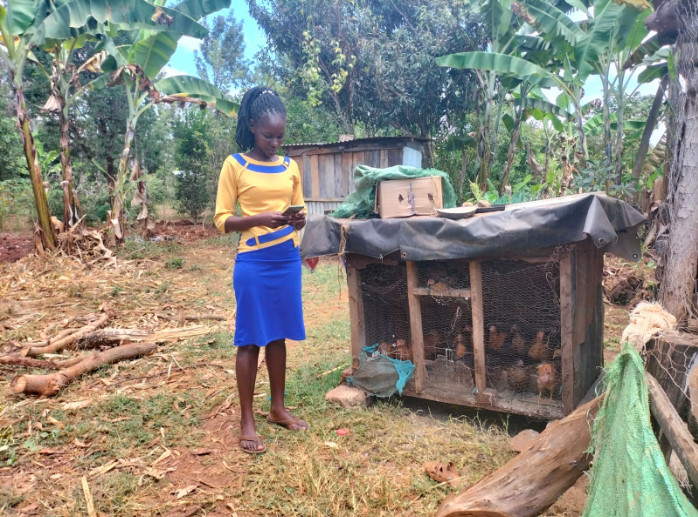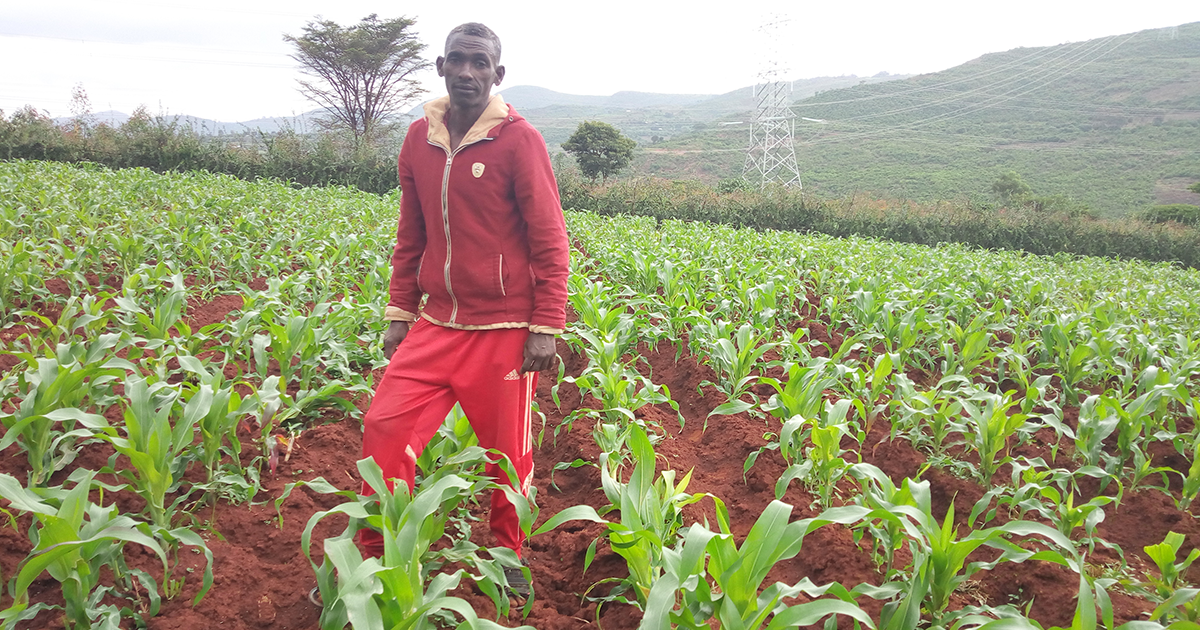In Meru County, Kenya, at the vibrant heart of its agricultural community, Annred Gakii’s farm stands as a testament to innovation and resilience. At 29, this single mother has dramatically transformed her agricultural practices and economic outlook through the strategic use of advanced technology. By leveraging the capabilities of Farmer.Chat Kenya, an AI-powered digital assistant designed specifically for farmers, Annred has not only revolutionized her farm operations but has also become a source of inspiration and leadership within her community.
Annred’s venture into agriculture was born out of necessity—a young single mother returning to her parents’ home, determined to forge a sustainable future for her son and herself. Initially, her efforts were met with modest success, limited by traditional farming methods that did not yield enough to lift her family out of financial uncertainty. The turning point came when she discovered Farmer.Chat Kenya through a local agricultural training program. This innovative tool introduced her to a world of possibilities, including real-time agricultural advice and data-driven farming techniques.
One notable instance of the tool’s impact came when Annred faced an urgent crisis: her dairy cow became severely ill. Utilizing Farmer.Chat, she quickly accessed vital advice on how to handle the situation. “The cow was assessed and found to be fit for consumption and so I sold it off to the slaughterhouse in good time,” Annred recalls. The proceeds from this sale allowed her to purchase a new calf and sustain her dairy operations without financial loss.
Buoyed by this success, Annred expanded her agricultural endeavors. Initially focusing solely on millet, she diversified her crops to include maize, beans, bananas, sunflowers, and even ventured into poultry farming. Each step of the way, Farmer.Chat provided her with tailored advice that maximized her yields and minimized costs. The digital tool helped her understand the best planting practices and optimal harvest times, significantly boosting her farm’s productivity.
“The financial barriers that once seemed insurmountable are now a thing of the past. School fees are no longer a problem, and now, I even support my parents,” Annred shares with pride. This financial stability is a direct result of her embracing technological solutions in her farming practice, which have not only increased her yields but also enhanced the quality of life for her family.
Moreover, Annred’s success has elevated her status in the community, turning her into a local agricultural advisor. Her experience with Farmer.Chat has equipped her with the knowledge to assist her neighbors and fellow farmers, translating digital advice into practical, actionable farming strategies. This role has not only empowered her but also fostered a spirit of collaboration and mutual growth within her community.
Looking to the future, Annred is enthusiastic about further expanding her crops and exploring new agricultural technologies. She is especially keen on continuing to improve her advisory role, aiming to nurture a new generation of tech-savvy, young farmers in Meru County. “The potential to revolutionize farming with digital tools is immense, and I am just getting started,” she states confidently.
Annred Gakii’s story is a compelling example of how integrating technology into traditional farming practices can lead to remarkable outcomes. It underscores the critical role of innovative digital tools like our AI assistant, Farmer.Chat in empowering farmers to make informed decisions, increase productivity, and achieve sustainability. As we celebrate her achievements, we also recognize the broader implications for agricultural development—where technology and traditional knowledge meet, the possibilities for transforming lives and communities are boundless.

